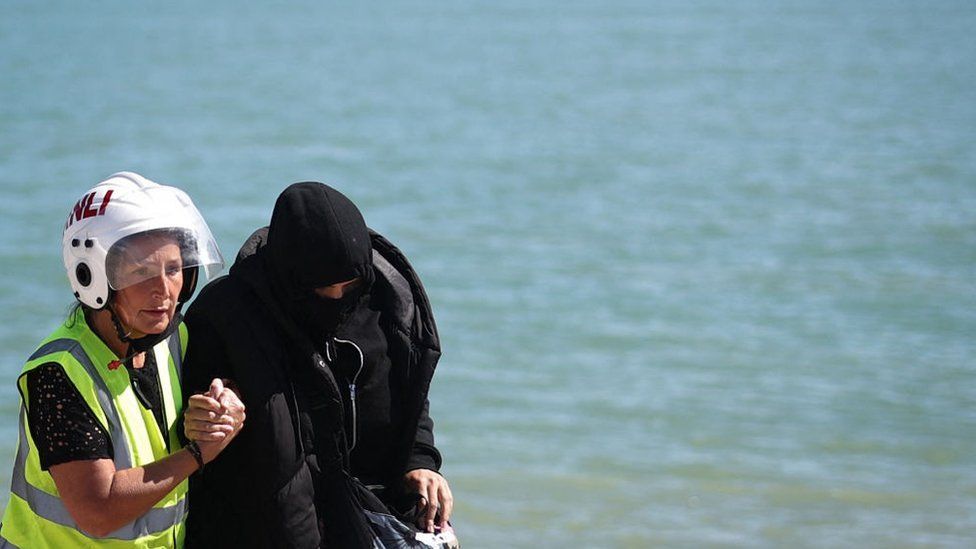ARTICLE AD BOX
 Image source, AFP
Image source, AFP
A migrant is assisted on the beach at Dungeness, England, this summer
By Nick Eardley, Political Correspondent & Sam Francis, Political Reporter
BBC News
The government is set to confirm plans to end the use of 50 hotels to house migrants by January.
In March, the BBC learned around 400 hotels were being used to house record numbers of asylum seekers.
On Tuesday, Immigration Minister Robert Jenrick will announce plans to start terminating hotel contracts that are costing the taxpayer £8m a day.
Ministers have frequently criticised the cost, promising the reduce the government's reliance on hotels.
The use of hotels has increased exponentially as the number of people claiming asylum in the UK has increased, reaching a near 20-year high of 74,751 last year, according to Home Office data.
Under the Immigration and Asylum Act 1999, the Home Office has a statutory obligation to house asylum seekers, who would otherwise be destitute, whilst their claim is being processed.
In August, the number of asylum seekers having their application processed reached a record high of 175,000 people.
In December 2022, Prime Minister Rishi Sunak set a target of clearing the so-called legacy backlog by the end of this year. Since then the government has doubled the number of people processing asylum applications to 2,500.
Labour have called for 1,000 more caseworkers to be hired to clear the asylum backlog.
Smaller hotel bill
Some hotels have stopped housing migrants in recent weeks, including around Northampton and Kettering - potential target areas for Labour at the next general election.
Others are thought to only have a small number of migrants left in them.
Some migrants have also been moved on the Bibby Stockholm barge in an attempt to reduce the hotel bill.
The vessel, which has capacity for up to 500 men awaiting the outcome of asylum applications, was evacuated in August after Legionella bacteria was found in the water supply.
Ministers hope to use further barges to house migrants in the coming months.
In recent months, hotels housing asylum seekers were targeted by demonstrations which sometimes turned violent.
Under a government plan announced in April 2022, some asylum seekers would be sent to Rwanda to claim asylum there.
The legality of the scheme is currently being considered by the Supreme Court, after an earlier ruling by the High Court that the Rwanda plan was lawful.
Mr Sunak has made reducing the numbers coming to the UK illegally one of his key priorities.

 1 year ago
23
1 year ago
23








 English (US)
English (US)